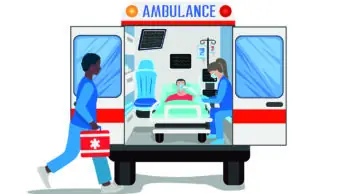
Shutterstock.com
Prescribing of simple analgesia, such as paracetamol and ibuprofen, has reduced by just 4% since NHS England published guidance intended to cut primary care prescriptions of over-the-counter (OTC) medicines, according to a study published in the March 2021 issue of the British Journal of General Practice.
In March 2018, NHS England published guidance for clinical commissioning groups (CCGs), which advised that OTC medicines should not be routinely prescribed in primary care for 35 self-limiting or short-term health conditions.
At the time, NHS England said that restricting prescribing for minor conditions — such as cold sores, mild acne, and minor conditions associated with pain, discomfort and/or fever — could save “up to almost £100m for frontline care each year”.
To investigate the impact of the guidance on prescribing rates of simple analgesia in primary care, researchers gathered practice-level prescribing data collated by NHS Digital from 7,914 GP practices between January 2015 and March 2019, and also submitted freedom of information requests to all CCGs in England.
Overall, they found that the publication of the guidance was associated with a “small” 4.4% reduction (adjusted incidence rate ratio [aIRR] 0.96, 95% confidence interval [CI] 0.92–0.99, P=0.027) in prescribing of simple analgesia, including paracetamol tablets and suspensions, ibuprofen tablets and suspensions, and topical non-steroidal anti-inflammatory drugs (NSAIDs).
The greatest level change was seen in ibuprofen suspensions, which saw a 13.2% reduction in prescribing rates (aIRR 0.868, 95% CI 0.758–0.993, P=0.045), but no level change was seen in ibuprofen tablets and capsules.
However, for all medications analysed, apart from topical NSAIDs, the rate of prescriptions had begun to decrease prior to the publication of the guidance.
The average actual spend on simple analgesia per 1,000 patients in the year after the guidance was published was £98, compared to £123 in the year prior.
The researchers also found “considerable” diversity across CCGs in whether or how they chose to implement the guidance, although they found no evidence to suggest a widening of the existing inequality of prescribing rates across the country.
“Further work is required to identify which CCG implementation measures bring about the greatest impact on prescribing behaviour,” the authors said.
“Ultimately, while promoting self-care and the use of alternative healthcare avenues may play a key role in medicines optimisation, mere publication of guidance on prescribing restrictions may only result in a modest cost-saving to the NHS.
“CCGs play a key role in ensuring effective implementation.”
Commenting on the findings, Claire Anderson, chair of the Royal Pharmaceutical Society’s English Pharmacy Board, said: “Whilst there is a slight fall in prescribing for OTC analgesics depending on the CCG, it’s important that no one is put in a position where they go without their medicines because they can’t afford to buy them.
“This reduction in prescribing must not restrict those who need analgesics from accessing them, which could lead to greater health inequalities and worsening health outcomes.
“Pharmacists play a vital role in encouraging self-care management and can give expert support to those seeking advice about OTC medicines.”
The NHS England guidance says that minor conditions associated with pain, discomfort and/or fever result in an annual medicines spend of £38.2m — around 7% of total spending on OTC medicines. It advises that headaches, period pain, mild fever and back pain could be treated at home in most cases with OTC painkillers and lifestyle changes, such as rest and fluids.
It says patients should be “encouraged” to keep a small supply of OTC analgesics at home so they are able to manage minor conditions without the need for a GP appointment.
In 2020, it emerged that NHS England had saved an estimated £32m as a result of the guidance; less than a third of what it had originally projected.
You may also be interested in

Ban on new distance-selling pharmacies will result in ‘even playing field’ for contractors, says government

MHRA urges women taking weight-loss drugs to use effective contraception
